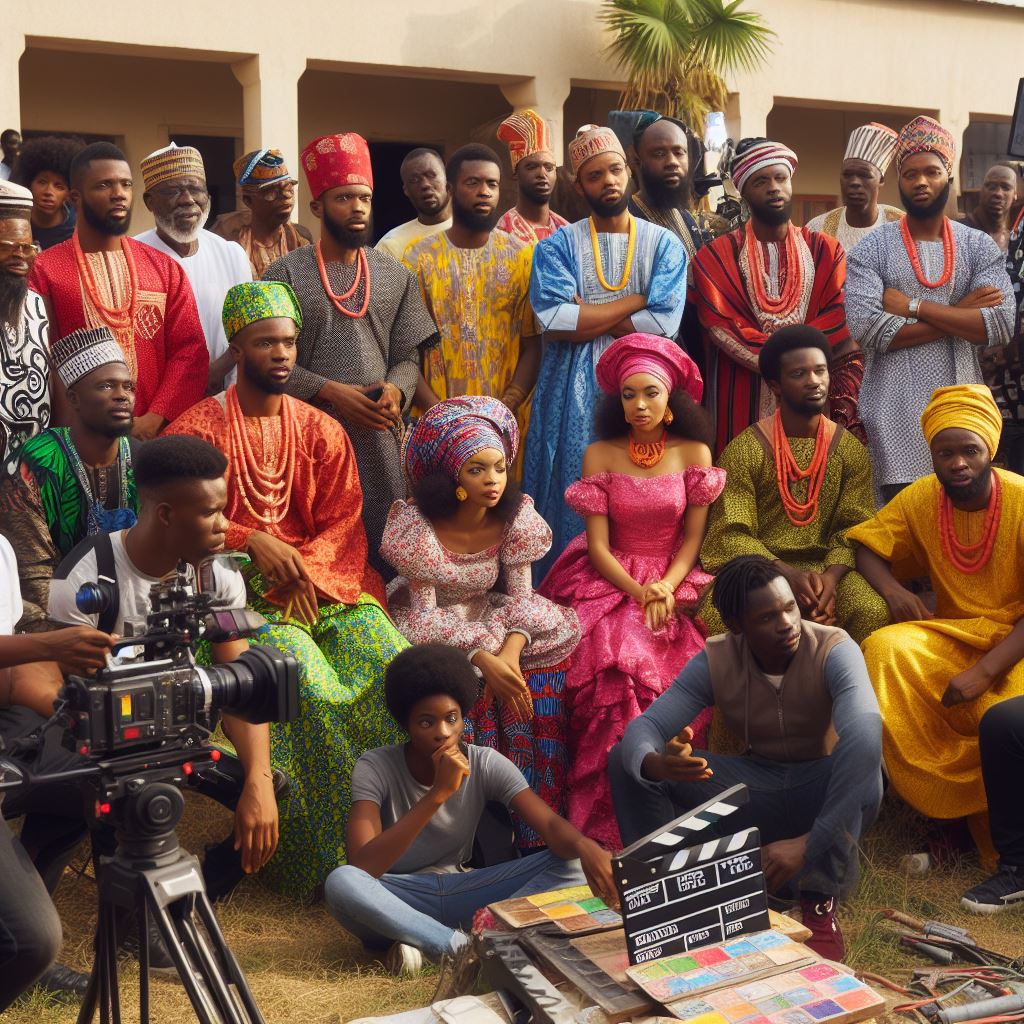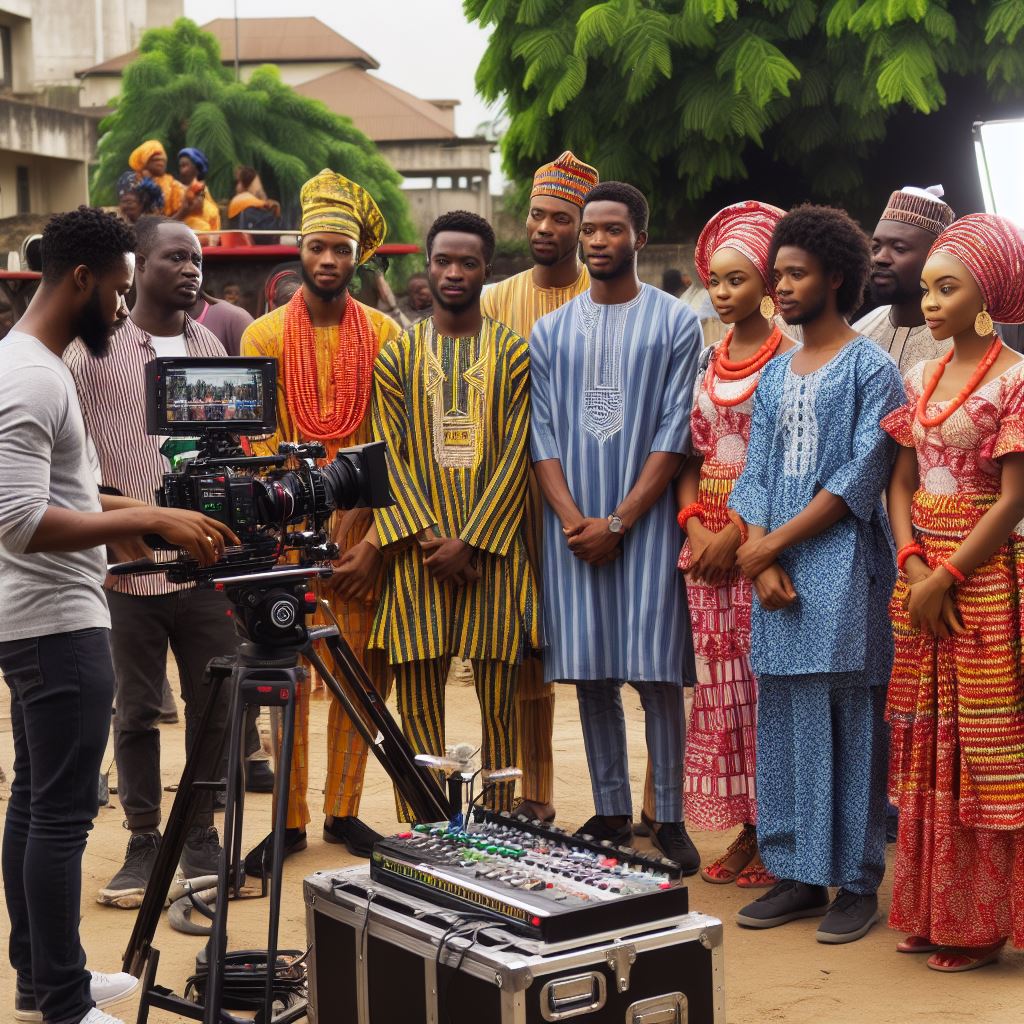Introduction
In Nigerian society, philosophy and religion hold significant roles in shaping cultural beliefs and practices.
The intersection of these disciplines influences how individuals perceive the world and their place within it.
Philosophy in Nigeria provides a platform for critical thinking and reflection on societal norms, values, and traditions.
It offers a space for intellectual discourse and the exploration of different perspectives.
Religion plays a central role in the lives of many Nigerians, providing moral guidelines, spiritual guidance, and a sense of community.
It influences personal beliefs, social interactions, and national identity.
In Nigerian perspectives, philosophy and religion often intersect, with philosophical ideas informing religious beliefs and practices.
This relationship can lead to a deeper understanding of cultural norms and the basis of ethical principles.
Nigeria is a diverse country with various religious and philosophical traditions.
This diversity enriches the dialogue between different perspectives, fostering a culture of tolerance and mutual respect.
Overall, philosophy and religion in Nigerian perspectives play crucial roles in shaping individual identities, societal values, and cultural practices.
The dynamic interplay between these disciplines continues to shape the moral, ethical, and intellectual landscape of the nation.
Historical Overview of Philosophy in Nigeria
The development of philosophy in Nigeria
Philosophy in Nigeria has a rich history dating back to pre-colonial times.
Traditional African philosophies and worldviews have heavily influenced Nigerian philosophical thought.
Colonialism introduced Western philosophy to Nigeria, leading to a blending of traditional and foreign ideas.
Nigerian philosophers have worked to integrate Western and African philosophical traditions in their work.
Key philosophers and their contributions to Nigerian philosophy
Leopold Sedar Senghor, a key figure in Negritude philosophy, advocated for the celebration of African culture.
Chinua Achebe, known for his literary works, also contributed to philosophical discourse in Nigeria.
Sophie Oluwole, a female philosopher, focused on Yoruba philosophy and its relevance in contemporary Nigerian society.
Oruka, an influential philosopher, explored indigenous African philosophies and their impact on modern thought.
How Nigerian philosophy has evolved over time
Nigerian philosophy has transitioned from a focus on traditional worldviews to a more diverse and inclusive approach.
The influence of globalization has led Nigerian philosophers to engage with a wide range of philosophical ideas and perspectives.
Nigerian philosophy continues to evolve, with a growing emphasis on addressing contemporary social and political issues.
The integration of traditional African philosophies with Western ideas has created a unique philosophical landscape in Nigeria.
Read: Notable Philosophy Departments in Nigerian Schools
Role of Religion in Nigerian Society
Religion plays a significant role in shaping Nigerian culture and traditions.
It serves as a cornerstone in the lives of many Nigerians, influencing various aspects of their daily routines and societal norms.
- Christianity: One of the major religions practiced in Nigeria, Christianity has a significant following, particularly in the southern regions of the country.
- Islam: Islam is another prevalent religion in Nigeria, with a large population of Muslims residing in the northern parts of the country.
- Traditional African Religions: Despite the spread of Christianity and Islam, traditional African religions still hold sway in many rural communities.
Influence of Religion on Nigerian Culture and Traditions
Religion has deeply influenced Nigerian culture and traditions, permeating various aspects of life such as language, art, music, food, and social interactions.
Festivals, ceremonies, and rituals are often conducted in adherence to religious beliefs, showcasing the rich diversity and spiritual heritage of Nigeria.
How Religion Shapes Individuals’ Beliefs and Values in Nigeria
In a country as diverse as Nigeria, religion plays a vital role in shaping individuals’ beliefs and values.
It provides a moral compass, guiding people on issues of ethics, family structures, social relationships, and governance.
Many Nigerians look to their religious beliefs for guidance and direction in navigating life’s challenges and successes.
Ultimately, religion in Nigeria is a dynamic force that continues to evolve, adapt, and shape the fabric of society.
It serves as a unifying factor, bringing together people from diverse backgrounds under a common umbrella of faith and spirituality.
Read: Teaching Methods for European Languages in Nigeria
Philosophical Perspectives on Religion in Nigeria
Different philosophical perspectives on religion in Nigeria
Philosophy and religion have always intertwined in Nigerian society, shaping the way people perceive and engage with spiritual beliefs.
Nigerian philosophers have delved into the complexities of religion, offering diverse perspectives that reflect the country’s rich cultural heritage.
One of the philosophical perspectives on religion in Nigeria is the concept of African Traditional Religion (ATR).
ATR encompasses the indigenous spiritual practices of various ethnic groups in Nigeria.
Philosophers have examined how ATR influences morality, social order, and community cohesion.
Transform Your Career with Expert Guidance
Get personalized mentorship consulting that’s tailored to your unique path. Our expert advice is actionable and exclusive.
Get StartedAnother viewpoint is the interaction between Christianity and Islam with indigenous belief systems.
Nigerian philosophers have explored the syncretism that occurs when these global religions intersect with local traditions.
They analyze how this fusion shapes individuals’ worldviews and ethical frameworks.
How Nigerian philosophers have addressed questions related to faith, belief, and spirituality
Nigerian philosophers have also addressed questions related to faith and belief, questioning the nature of God, the existence of evil, and the role of spirituality in human life.
By engaging with these profound inquiries, philosophers contribute to expanding the discourse on religion in Nigeria.
The relationship between philosophy and religion in Nigerian thought
The relationship between philosophy and religion in Nigerian thought is complex and dynamic.
Philosophers often critique religious dogma and challenge traditional beliefs, promoting critical reflection and intellectual inquiry.
They seek to reconcile philosophical reasoning with spiritual experiences, bridging the gap between faith and reason.
In fact, philosophical perspectives on religion in Nigeria offer valuable insights into the cultural, social, and ethical dimensions of spirituality.
Nigerian philosophers play a crucial role in shaping the country’s religious landscape, fostering a deeper understanding of faith and belief systems.
Read: Language Exchange Programs Between Europe and Nigeria

Gain More Insights: Must-Have Equipment for Nigerian Filmmakers
Learn More: Key Economic Theories Explained for Nigerian Students
See Related Content: Public Perception of Criminology in Nigeria
Challenges and Controversies in Philosophy and Religion in Nigeria
Current Debates and Controversies in Philosophy and Religion in Nigeria
As Nigeria continues to grapple with various challenges and controversies in the realms of philosophy and religion, it is crucial to examine these issues in detail.
- Religious Intolerance: One of the primary debates in Nigeria is the issue of religious intolerance.
This stems from the diverse religious landscape in the country, as adherents of different faiths often clash over belief systems and practices. - Fundamentalism: Another significant controversy is the rise of religious fundamentalism in Nigeria.
This extreme adherence to specific religious doctrines has led to tensions and conflicts within and between religious communities. - Clash Between Traditional Beliefs and Modern Ideologies: Nigeria’s rich history of traditional beliefs and practices often clashes with modern ideologies and worldviews.
This clash raises questions about cultural identity, authenticity, and adaptability in a rapidly changing society.
Impact on the Practice and Study of Philosophy and Religion
These challenges have profound impacts on the practice and study of philosophy and religion in Nigeria.
- They hinder open dialogue and critical thinking, essential components of philosophical inquiry and religious interpretation.
- They fuel divisiveness and polarization among religious communities, stifling opportunities for mutual understanding and cooperation.
- They create barriers to academic freedom and intellectual exploration, limiting the growth and development of philosophical and religious discourse.
- They challenge scholars and practitioners to navigate complex ethical dilemmas and engage in meaningful dialogue to promote peace and harmony in a diverse society.
Despite these obstacles, many individuals and organizations are working tirelessly to address these challenges and promote a culture of tolerance, dialogue, and inclusivity in the realms of philosophy and religion in Nigeria.
By engaging in respectful debates, promoting interfaith dialogue, and fostering a spirit of cooperation, Nigeria can overcome these controversies and build a more harmonious and inclusive society for all its citizens.
Read: How to Choose the Right European Language to Learn
Find Out More: Key Figures in Nigerian Performing Arts
Explore Further: Conferences and Seminars in History & Strategic Studies
Contemporary Trends and Movements in Philosophy and Religion in Nigeria
In recent years, Nigeria has seen various contemporary trends and movements in philosophy and religion that are shaping the landscape of intellectual discourse and spiritual beliefs in the country.
Recent Developments in Nigerian Philosophy and Religious Thought
One of the notable developments in Nigerian philosophy is the increasing emphasis on indigenous philosophical traditions.
Scholars and thinkers are delving into the rich heritage of African thought, challenging the dominance of Western philosophy in academic circles.
Similarly, in the realm of religion, there is a growing interest in traditional African spirituality and practices.
Many Nigerians are exploring their roots and embracing indigenous belief systems that have been marginalized or stigmatized in the past.
Emerging Trends and Movements Shaping the Future of Philosophy and Religion
One of the emerging trends in Nigerian philosophy is the intersection of philosophy with socio-political issues.
Philosophers are engaging with contemporary challenges such as corruption, governance, and human rights, providing critical perspectives and alternative frameworks for addressing these issues.
In the domain of religion, there is a movement towards interfaith dialogue and cooperation.
With the rise of religious extremism and intolerance, many Nigerian religious leaders and scholars are advocating for mutual understanding and collaboration among different faith traditions.
How Contemporary Developments are Redefining Nigerian Perspectives on Philosophy and Religion
These contemporary developments in philosophy and religion are challenging the status quo and redefining Nigerian perspectives on these subjects.
They are fostering a more inclusive and diverse intellectual and spiritual landscape that reflects the plurality of beliefs and ideas present in the country.
Furthermore, these trends are promoting a decolonization of knowledge and a reclamation of indigenous philosophies and spiritual practices that have been suppressed or distorted by colonial legacies.
By centering African perspectives and experiences, Nigerian thinkers and religious practitioners are establishing new frameworks for understanding the world and engaging with global discourses.
Explore Further: Specializations in Mass Communication Degrees Nigeria
Explore Further: African Diaspora Studies within Nigerian Universities
Learn More: Understanding Film Licensing Laws in Nigeria
Delve into the Subject: Top Employers for Criminology Graduates Nigeria
Conclusion
This blog post has highlighted the interconnectedness of philosophy and religion in Nigerian perspectives.
Both disciplines play a crucial role in shaping beliefs, values, and societal norms in Nigeria.
Philosophy provides a critical lens through which Nigerians can analyze and understand their cultural practices, while religion offers a moral compass and spiritual guidance.
Together, they influence how Nigerians perceive the world around them and interact with others.
The importance of philosophy and religion in Nigerian society cannot be overstated.
They provide a framework for moral reasoning, ethical decision-making, and social cohesion.
By exploring these topics further, Nigerians can deepen their understanding of themselves and their place in the world.
It is essential to encourage ongoing dialogue and exploration of philosophy and religion in Nigeria.
Through open discussions and debates, Nigerians can continue to shape their perspectives and foster a greater sense of unity and mutual understanding within their diverse society.
By engaging with these complex and nuanced topics, Nigerians can further enrich their cultural heritage and contribute to a more harmonious and inclusive society.




